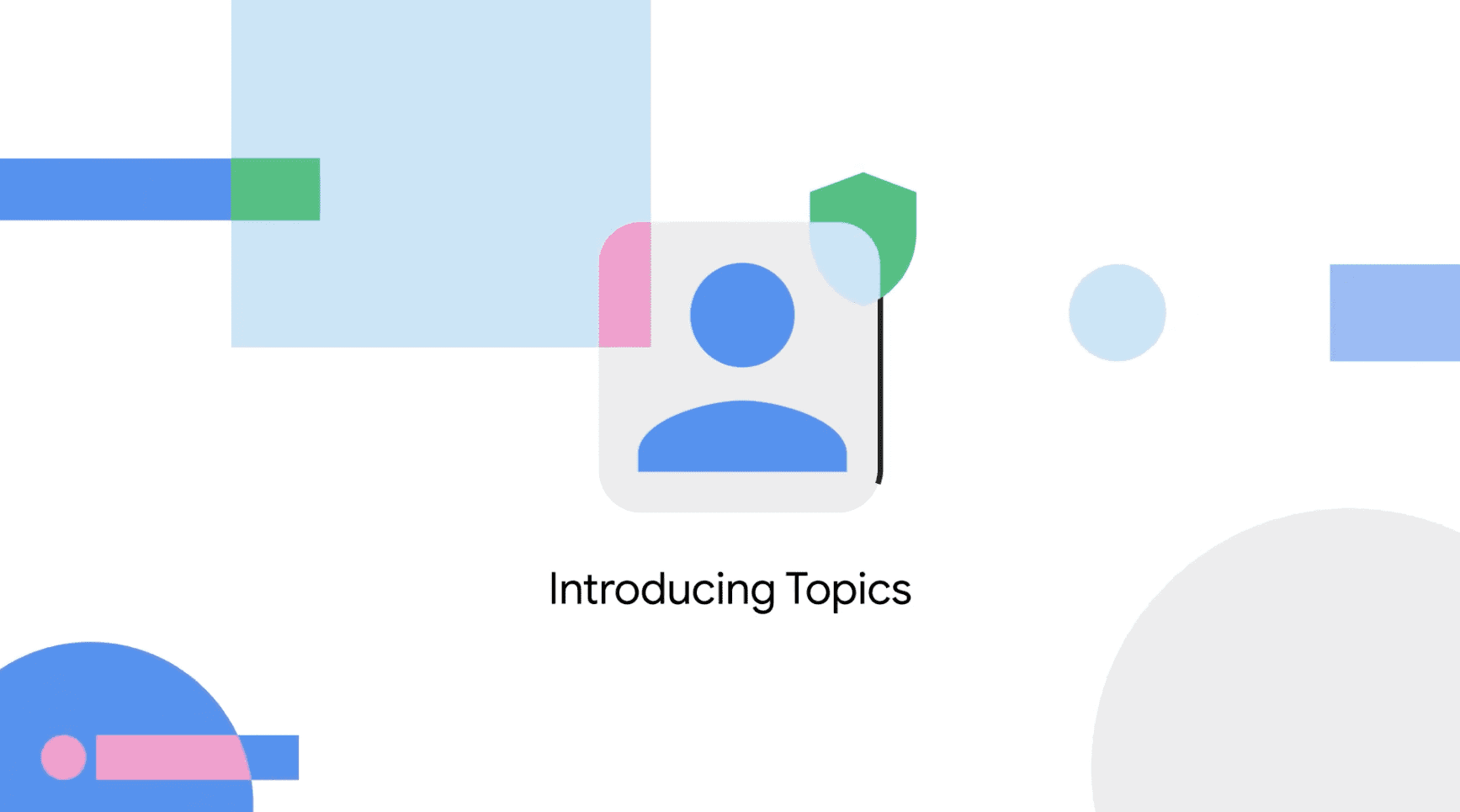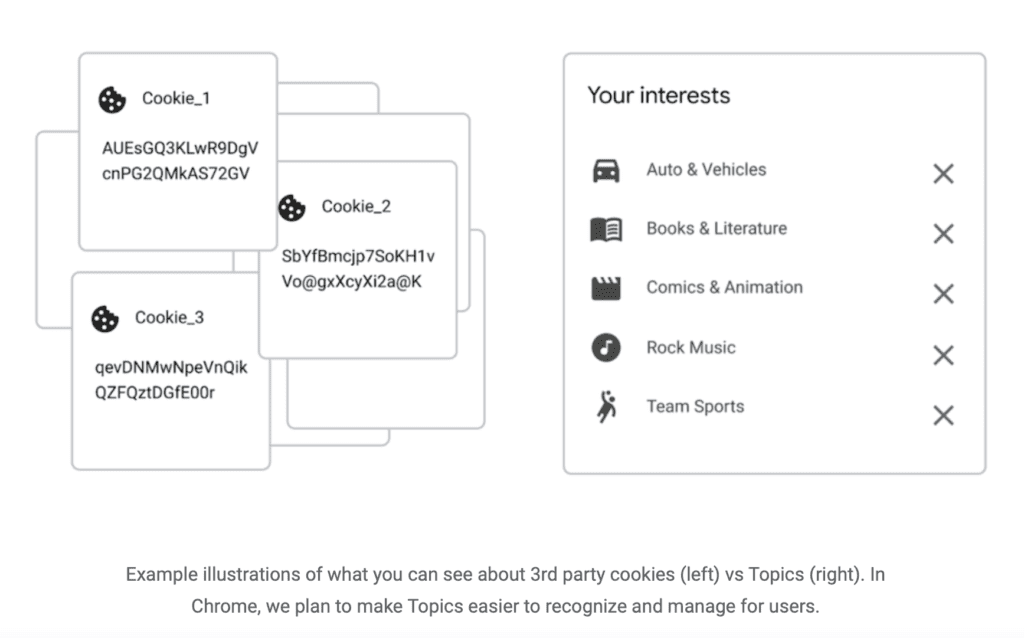Google’s FLoC didn’t float. Will Topics fly?
On January 25, Google said it is killing FLoC (Federated Learning of Cohorts), which was Google’s alternative to targeting consumers with cookies based on third-party ads on Google’s Chrome browser. Instead, Google is introducing a new alternative, Topics. Topics is the latest twist in Google’s attempt to gain a competitive edge through consumer privacy.
Understanding the news requires a bit of a refresher on Google’s journey with privacy. So, here goes:
- January 2020: Google said it would phase out support for third-party cookies on Google Chrome, which is the most popular browser in the world. Advertisers rely on third-party cookies to track user behavior across the web in order to serve up personalized ads. Google said it wanted to make the web more private. Google said it would work with advertisers to create alternatives to third-party cookies through its Privacy Sandbox Google later delayed its plans to 2023 in the face of pressure from U.K. regulators.
- January 2021: Google announced it was developing an open-source program that would ease the pain of businesses eventually losing access to third-party cookies. This open-source program was known as FLoC. FLoC was supposed to make it possible for businesses to group people based on their common browsing behavior instead of using third-party cookies.
- March 2021: Google doubled down on its campaign against cookies. Google said that once third-party cookies were phased out of Chrome browsers, Google would not build alternative identifiers to track individuals as they browse across the web, nor would Google use them in its products. Examples of those alternative identifiers include Unified ID and LiveRamp IdentityLink. Instead, Google pushed advertisers to – you guessed it — adopt FLoC.
But FLoC caught plenty of flak from consumer privacy advocates who believed Google was overplaying its hand, as well as advertisers and agencies who accused Google of strong-arming them into playing by Google’s own rules. Now, Google is returning with an alternative the company hopes will be more acceptable: Topics.
Topics will track people on Chrome and assign them a set of advertising categories (such as travel or fitness) based on the sites they visit. When a person goes to a site with ads, Google will share three of those topics with advertisers on the site, which will allow the advertise to show them to show a relevant ad.
In a blog post, Google said, “Topics are kept for only three weeks and old topics are deleted. Topics are selected entirely on your device without involving any external servers, including Google servers. When you visit a participating site, Topics picks just three topics, one topic from each of the past three weeks, to share with the site and its advertising partners. Topics enables browsers to give you meaningful transparency and control over this data, and in Chrome, we’re building user controls that let you see the topics, remove any you don’t like or disable the feature completely.”
Google will launch a developer trial of Topics in Chrome that includes user controls, and enables website developers and the ads industry to try it out. The final design of the user controls and the other various technical aspects of how Topics works will be decided based on feedback and what Google learns in the trial.
Meanwhile, Google is feeling the heat from the rise of retailer-operated ad networks such as Amazon Advertising and Walmart Connect. These networks leverage their own first-party customer data to sell ad units. Advertisers, sensing the demise of targeting based on third-party cookies (from Google and Apple as well), are increasingly working with ad networks whose first-party data is beyond the reach of Google. And retailer-based networks give advertisers access to consumers who share the same interests and habits.
What Advertisers Should Do
- Do your homework. Stay on top of Topics by following Google’s public blog posts and explainers (such as this one and this one).
- Work with your advertising agency to understand what’s happening and how you may be affected. That’s exactly what our clients are doing with True Interactive. That’s what we’re here for.
- If you are succeeding with Google Ads, stay the course. Google is enduring an imperfect transition right now toward a privacy-world. But Google Ads? They’re not going away. Far from it – Google Ads are alive and well based on our experiences helping clients succeed with them.
- Do invest in ways to leverage your own (first-party) customer data to create personalized ads. We can help you do that.
- Consider ad platforms such as Amazon Advertising and Walmart Connect, which, as noted above, give businesses entrée to a vast base of customers who search and shop on Amazon and Walmart. True Interactive offers services on both platforms in addition to our longstanding work on Google, Bing, and other platforms.
Contact True Interactive
To succeed with online advertising, contact True Interactive. Read about some of our client work here.

